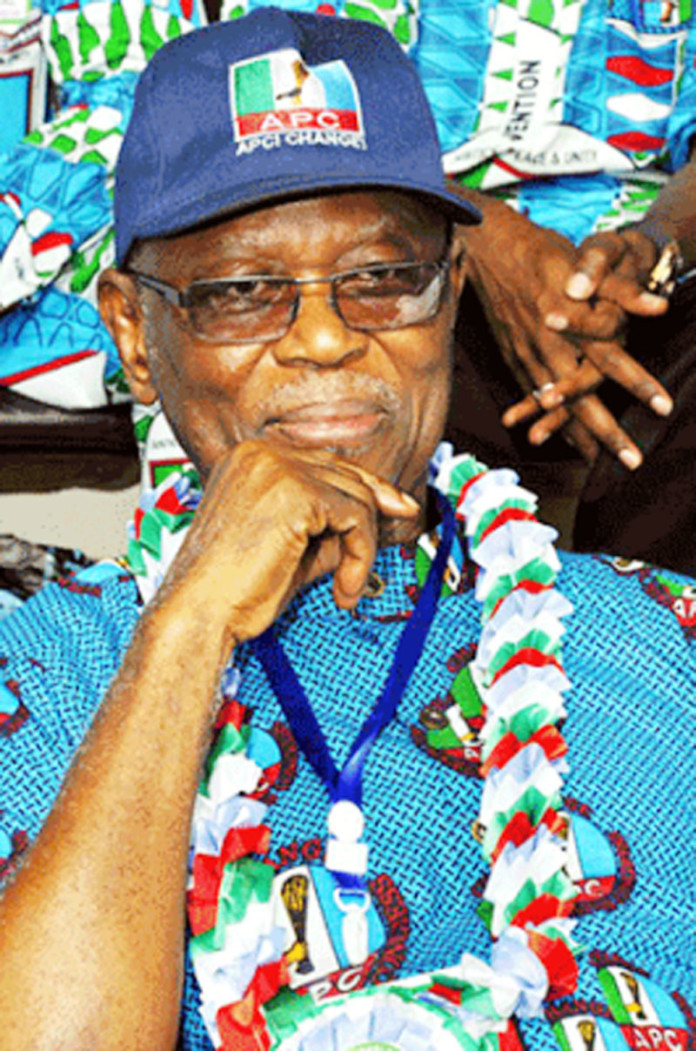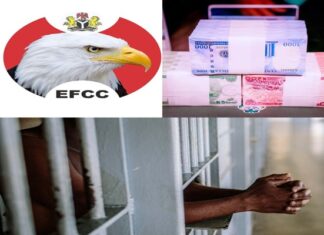Assistant Features Editor, CHUKWUDI NWEJE, examines the extent the Buhari administration has impacted on Nigerians against the backdrop of its pre-election Change mantra.
Monday May 29, 2017 will mark the second anniversary of the President Muhammadu Buhari-led All Progressives Congress (APC) government. The party came to power on the promise that it would transform the country. It accused the Peoples Democratic Party (PDP) of misrule during its 16 year-rule and promised it would turn things if given the mandate.
Indeed, when the party was formed in February 2013, Nigeria was passing through a difficult time. Infrastructure was virtually non-existent, there was high degree of corruption in government, which it said the government in power lacked the political will to tackle. There was massive unemployment in the country. Security of lives and property was also threatened.
These and other pressing situations in the country had pushed Nigerians to the brink and many desired something new.
A Party and its promises
It was, thus, convenient for APC to campaign on the promise of ‘Change’ and promise to turn things around if given the mandate during the elections in April 2015.
The promise particularly focused on seven key areas – infrastructure, the environment, politics and governance, security & conflict resolution, jobs & the economy, the society and human capital development and currency stabilization. The party promised to create an enabling environment for all stakeholders as well as restore the infrastructure system which had decayed over the years. It promised to protect the environment from pollution and invest in natural disaster solutions. The party also vowed to make the country’s politics and governance more transparent.
The party also promised to secure the territorial integrity of the nation and end the menace of the terror group as well as secure the release of the kidnapped Chibok, Borno State secondary school girls. It promised to tackle unemployment and reduce the large number of unemployed youths, believed to provide a recruitment centre for the Boko Haram and other criminal organisations.
The party promised job creation and payment of benefits to the unemployed. It promised to diversify the economy away from crude oil as it had become obvious that crude oil that sustained the country’s economy was unsustainable. Nigerians were convinced and the APC won the 2015 elections, the first time in Nigeria history that the opposition would win the party in power at the election.
A dream bungled
Prior to the election, precisely in April 2014, Nigeria’s economy surpassed that of South Africa to become the largest in Africa after the gross domestic product (GDP) was rebased. The size of the economy expanded by more than three-quarters to an estimated 80 trillion naira ($488 billion) for 2013, according to data released by the National Bureau of Statistics (NBS).
These figures tumbled in August 2016, barely one year after the APC government came to power. The NBS officially declared the country to be in its worst economic crisis in more than a decade. The NBS reported that “In the second quarter of 2016, the nation’s Gross Domestic Product (GDP) declined by -2.06 percent (year-on-year) in real terms. This was lower by 1.70 percentage points from the growth rate of 0.36 percent recorded in the preceding quarter, and also lower by 4.41 percentage points from the growth rate of 2.35 percent recorded in the corresponding quarter of 2015,” it said.
Changes delivered
Despite Nigeria sliding into recession, there are those who believe that the APC-led government has lived up to its promises especially on accountability, security and food production. In August 2016, Minister of Niger Delta, Usani Uguru Usani said that the change APC promised was already manifested in the country. He said that had it not been for the change in government that “Nigerians would have been seen crawling to feed from waste bins, you may not understand, but that is the reality.”
In his words, “The change we promised is that we will no longer depend on oil again, and presently, diversification is taking place…The change we promised is to see a government functionary being probed and probably prosecuted which hitherto was not the case. The change we promised is, as Nigerians are experiencing hardship, people are also refunding to government what was derived from corrupt practices and you have heard the government say that the budget will be funded in part by these funds that are being refunded.
“Also, when the President was campaigning as a candidate then, he said the economy, anti-corruption and security were going to be his focus” Usani said
Mixed reactions
Two years down the line, the jury is out on how far the country has changed for the better. Undoubtedly, change came to Nigeria, but the question is what kind of change? Nigerians expressed mixed reactions on the performance of the APC-led government.
Adebayo Adeolu, a public affairs analyst said that two years into the administration, the country has experienced positive and negative changes.
For instance, he rated the government poor on the economy. In his words, “The problem of the exchange rate cannot move the country anywhere or deliver any good service to the people. The cost of living is too high. The prices of essential goods and services and consumer goods are too high. This is affecting every sector.
“The Finance Minister, Kemi Adeosun, diagnoses all the problems but does not seem to know what to do to fix the exchange rate so she seems to sing without solution. She keeps saying we will get out of recession soon, but how? You only get out of a bad economic situation when the everyday goods needed are affordable and the price tumbles,” he said.
Adeolu identified the war against terror as being partly responsible for the drain on the economy. “When a civil war goes on in a country, financial savings are lost as investment in military equipment drains the reserves of the country’s savings,” he said and called on the government to adopt tougher measures against those who looted the economy in order to recoup some of the stolen funds.
Executive Chairman, Centre for Anti-Corruption and Open Leader (CACOL), Mr. Debo Adeniran also said that the APC government has made some positive gains. “We say unequivocally that Nigeria has made a lot of gains with Buhari as President. We do not belong to the category that does not recognise that the President’s body language and the policies he has been implementing have really put the incurably corrupt elements in government positions and their collaborators on their toes and thereby moving the country towards a more positive direction.
“It will amount to living in self-deceit if we don’t appreciate that Buhari’s coming has made the kitchen hotter for most of the dubious elements in our public offices and the private sector with the will and zeal the Mr. President has confronted corruption thus far.
“We need to look at the gains of the Treasury Single Account (TSA), the re-energized anti-corruption agencies, and the reality that even bribe givers and other corrupt elements who previously operated freely with bared-faced impunity cannot continue ‘business as usual’ since the new Sherriff came town. The President being alive rather than being dead like his detractors would want, scares those who want to continue the business of corruption to the marrows. That is why they would rather want Buhari dead or his resignation at moment. It is a plot to take country back to those corrupt days of particularly the previous government,” Adeniran said.
- Advertisement -
- Advertisement -















